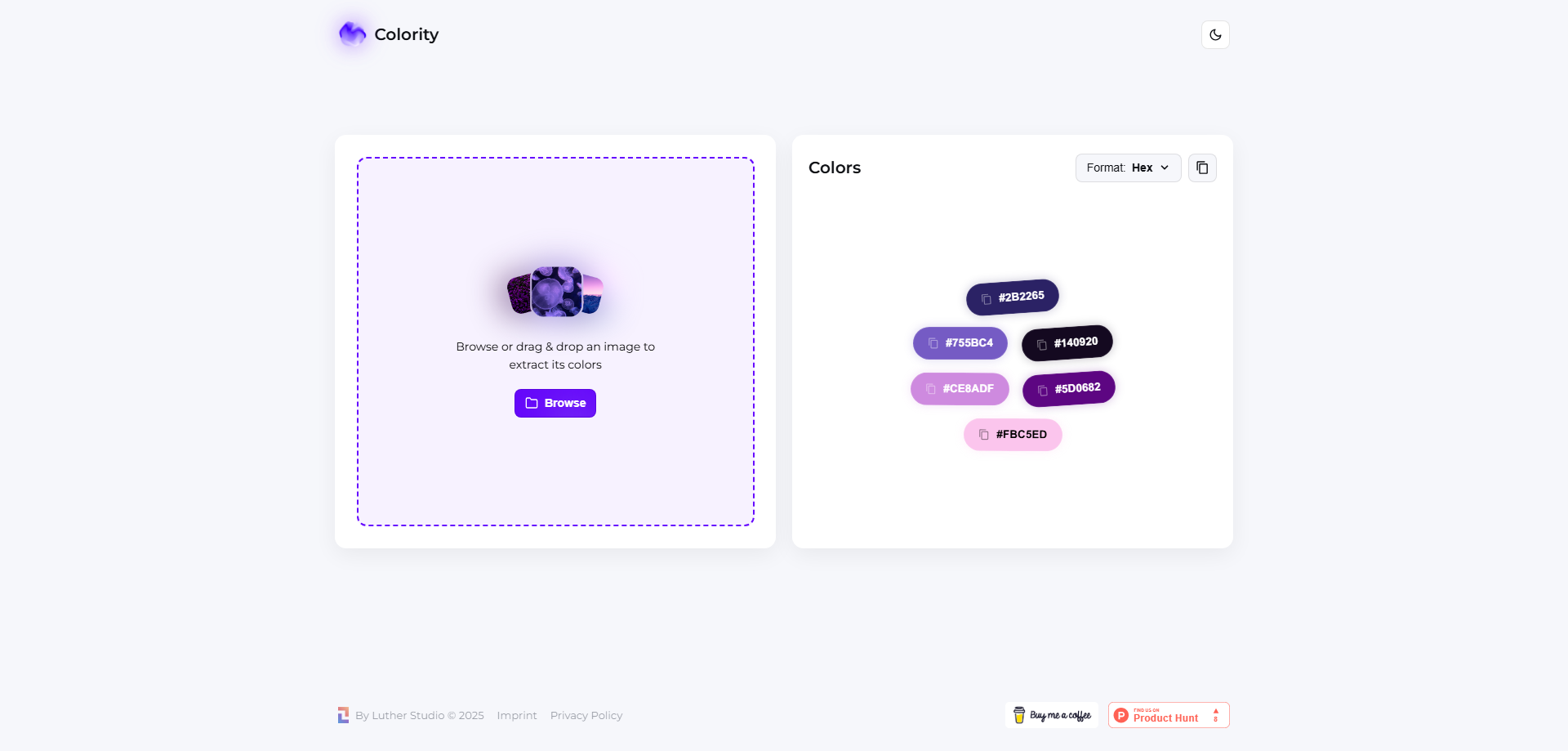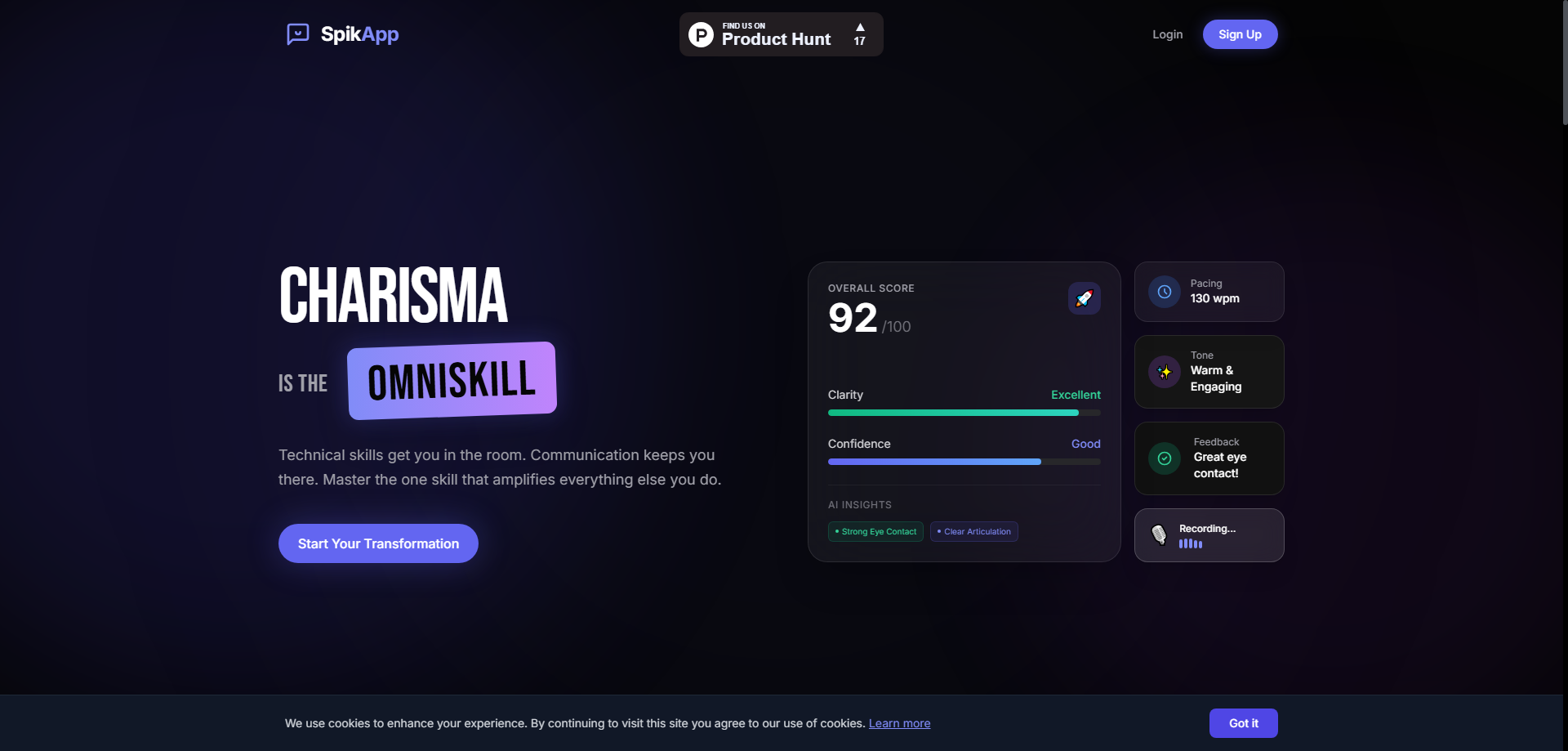SEO Writing AI: Revolutionizing Automated Content Creation for Search Engine Optimization
In the competitive landscape of digital marketing and content creation, SEO Writing AI emerges as a specialized platform designed to address the growing demand for high-volume, search-optimized content production. This comprehensive AI-powered solution combines advanced content generation capabilities with sophisticated SEO optimization tools, enabling users to create, optimize, and publish content at unprecedented scale while maintaining search engine visibility and ranking potential.
Comprehensive AI-Powered Content Generation
SEO Writing AI distinguishes itself through its focus on search engine optimization as a fundamental component of content creation rather than an afterthought. The platform leverages advanced artificial intelligence technology to analyze search engine results pages (SERPs), identify winning content patterns, and generate articles that incorporate proven SEO elements from the outset. This approach ensures that generated content is strategically positioned to compete effectively in search rankings.
The platform's content generation capabilities extend far beyond basic text creation. Users can produce comprehensive articles ranging from standard blog posts to extensive long-form content exceeding 5,000 words. This flexibility enables content creators to address diverse audience needs and search intent patterns while maintaining the depth and comprehensiveness that modern search algorithms favor.
The integration of multiple AI models from leading providers including OpenAI, Anthropic, Meta, DeepSeek, and Groq ensures robust and varied content generation capabilities. This multi-model approach reduces dependency on any single AI provider while leveraging the unique strengths of different language processing technologies to enhance content quality and variety.
Advanced SEO Optimization Features
The platform's SEO optimization capabilities represent a significant advancement over generic AI writing tools. SEO Writing AI automatically generates essential meta elements including meta titles, meta descriptions, and image alt tags, ensuring that content meets technical SEO requirements without manual intervention. This automated approach to technical optimization saves substantial time while maintaining compliance with search engine best practices.
The system's ability to scan SERP winners and extract successful content patterns enables users to create content that aligns with proven ranking factors. By analyzing top-performing content in target niches, the platform helps users understand and implement content structures, keyword usage patterns, and topical coverage that search engines reward with higher rankings.
Keyword optimization extends beyond basic keyword insertion to include semantic keyword integration and natural language processing (NLP) keyword identification. This sophisticated approach to keyword implementation ensures content reads naturally while maintaining strong search optimization signals that support ranking performance.
Bulk Generation and Automation Capabilities
One of SEO Writing AI's most compelling features is its bulk content generation capability, which enables users to create multiple articles simultaneously based on predefined parameters. This functionality proves particularly valuable for content marketers, affiliate marketers, and website operators who need to maintain consistent publishing schedules across multiple topics or websites.
The platform's WordPress integration represents a significant workflow optimization, enabling automatic content publishing directly to WordPress websites without manual intervention. Users can schedule content publication, manage multiple WordPress sites from a single dashboard, and maintain consistent publishing schedules that support SEO performance and audience engagement.
The bulk generation feature works seamlessly with the platform's SEO optimization tools, ensuring that each generated article maintains appropriate optimization standards regardless of volume. This consistency proves crucial for users managing large-scale content operations where manual optimization would be impractical.
Specialized Affiliate Marketing Tools
SEO Writing AI includes specialized features designed specifically for affiliate marketers and e-commerce content creators. The Amazon product list integration enables users to create comprehensive product roundup articles and detailed product reviews with automatically generated product information, specifications, prominent features, pros and cons, and descriptive content.
This affiliate-focused functionality addresses the specific content needs of performance marketers who require detailed, informative product content that drives conversions while maintaining search visibility. The platform's ability to extract and organize product information streamlines the creation of comparison articles, buying guides, and product reviews that form the foundation of successful affiliate marketing strategies.
The call-to-action (CTA) extraction capability ensures that affiliate content includes compelling conversion elements that encourage reader action while maintaining the informational value that search engines reward. This balance between commercial intent and user value represents a sophisticated understanding of modern affiliate marketing requirements.
Multilingual Capabilities and Global Reach
With support for 48 languages, SEO Writing AI enables content creators to develop comprehensive international content strategies without requiring separate tools or workflows for different markets. This multilingual capability extends to both content generation and SEO optimization, ensuring that non-English content maintains the same optimization standards as English content.
The platform's language support includes appropriate cultural and regional considerations that affect content effectiveness in different markets. This attention to localization details enhances content relevance and user engagement across diverse geographic markets and cultural contexts.
AI Image Generation and Visual Content Integration
The platform's AI image generation capability addresses the growing importance of visual content in modern SEO and user engagement strategies. Users can generate contextually relevant images that complement written content while supporting overall page quality and user experience metrics that influence search rankings.
The automatic image generation feature includes appropriate alt text creation, ensuring that visual content contributes to overall SEO performance rather than creating optimization gaps. This integrated approach to visual and textual content creation streamlines workflows while maintaining comprehensive optimization coverage.
Flexible Pricing and Usage Models
SEO Writing AI's pricing structure accommodates diverse user needs through plans that emphasize generation counts rather than word limits. The unlimited words feature on Starter and Professional plans enables users to create comprehensive, in-depth content without artificial constraints that might limit content quality or completeness.
The platform's approach to unlimited generations for titles, descriptions, NLP keywords, and image regeneration provides flexibility for content optimization and refinement without additional costs. This structure supports iterative content improvement and testing processes that enhance final content quality.
Technical Infrastructure and Reliability
The platform's integration of multiple AI models and proprietary technology ensures robust performance and reduced dependence on any single technology provider. This technical diversification enhances reliability while providing access to cutting-edge AI capabilities as they become available.
The WordPress integration includes scheduling capabilities that enable strategic content publication timing to maximize SEO impact and audience engagement. Users can coordinate content releases with marketing campaigns, seasonal trends, or competitive timing considerations that enhance content performance.
Content Types and Versatility
SEO Writing AI supports diverse content types including news articles, blog posts, listicles, product reviews, and comparison articles. This versatility enables users to create comprehensive content strategies that address various search intents and audience needs within their target markets.
The platform's ability to generate content up to 5,000 words enables creation of comprehensive, authoritative articles that establish topical expertise and satisfy search engine preferences for thorough content coverage. This long-form capability supports content strategies focused on building domain authority and capturing competitive search terms.
Quality Control and Optimization Features
The platform includes content regeneration capabilities that enable users to refine and improve generated content without starting from scratch. This iterative approach supports content optimization processes while maintaining efficiency advantages over completely manual content creation.
The document outline generation feature ensures that longer content maintains logical structure and comprehensive topic coverage that serves both user needs and search engine requirements for thorough content treatment.
SEO Writing AI represents a significant advancement in automated content creation technology, specifically designed for users who prioritize search engine visibility and ranking performance. Through its combination of sophisticated AI content generation, comprehensive SEO optimization, bulk processing capabilities, and seamless WordPress integration, the platform enables content creators, marketers, and website operators to scale their content operations while maintaining the quality and optimization standards necessary for search engine success. The platform's focus on SEO-first content creation, combined with its automation capabilities and specialized features for affiliate marketing, positions it as a valuable tool for users seeking to build and maintain competitive content strategies in increasingly challenging digital markets.
My Analysis: Identifying the Prime SEO Writing AI Customer Segments Through Strategic Market Assessment
After thoroughly analyzing SEO Writing AI's feature set and capabilities, I've identified several distinct customer segments that can derive maximum value from this platform. Through my evaluation, I've discovered that while the tool markets itself broadly as an SEO content creation platform, certain types of businesses and content operations are uniquely positioned to leverage its bulk generation and automation features for significant competitive advantages.
Affiliate Marketers: The Primary Target Market
In my assessment, affiliate marketers represent SEO Writing AI's most suitable customer base, particularly those operating Amazon affiliate sites or managing multiple product-focused websites. The platform's Amazon product list integration directly addresses the core content needs of affiliate operations while its bulk generation capabilities enable the scale necessary for profitable affiliate marketing.
Consider Marcus, who operates five affiliate websites covering electronics, home improvement tools, kitchen appliances, fitness equipment, and outdoor gear. Each site requires dozens of product reviews, comparison articles, and buying guides monthly. Before SEO Writing AI, Marcus spent weeks researching products and writing detailed reviews. Now, using the platform's Amazon integration, he can generate comprehensive product roundups with specifications, pros and cons, and detailed descriptions in minutes rather than hours.
I've observed that affiliate marketers like Marcus particularly benefit from the platform's ability to extract and organize product information automatically. The tool generates product blocks with names, specifications, prominent features, pros, cons, and review descriptions—exactly what affiliate content requires for both user value and conversion optimization.
High-Volume Content Operations: Scaling Without Quality Loss
Through my analysis, I've identified content operations that need to publish dozens or hundreds of articles monthly as highly suitable users. These businesses—including content farms, niche site portfolios, and digital publishing companies—require consistent content production at scales that make manual writing impractical.
Take Jennifer, who manages a portfolio of 20 niche websites covering topics from pet care to home gardening. Each site needs 10-15 articles monthly to maintain search visibility and audience engagement. SEO Writing AI's bulk generation feature allows her to create content strategies for entire sites, generating months of content in single sessions. The WordPress auto-publishing feature enables her to schedule content releases across all properties without manual intervention.
I've found that high-volume operators like Jennifer use the platform most effectively by developing systematic approaches to content planning. They create keyword lists, generate bulk content around seasonal trends, and use the scheduling features to maintain consistent publishing across their entire portfolio.
SEO Agencies: Client Content at Scale
My research indicates that SEO agencies managing multiple client accounts find exceptional efficiency gains through SEO Writing AI's automation capabilities. These agencies face constant pressure to produce optimized content for diverse industries while maintaining quality standards and meeting client deadlines.
Consider David, who runs an SEO agency serving 25 clients across industries like law, healthcare, home services, and e-commerce. Each client requires 4-8 optimized blog posts monthly, totaling over 150 articles. SEO Writing AI enables David's team to generate initial drafts that incorporate SERP analysis and keyword optimization automatically. The platform's ability to scan winning content patterns helps ensure client content follows proven ranking strategies.
I've observed that agencies like David's benefit significantly from the platform's meta tag generation and technical SEO features. Instead of manually crafting meta titles and descriptions for hundreds of articles, the AI handles these technical requirements while the team focuses on client strategy and content customization.
International Content Creators: Multilingual SEO Operations
Through my evaluation, I've discovered that businesses operating in multiple languages or targeting international markets find exceptional value in SEO Writing AI's 48-language support combined with its SEO optimization capabilities. These operations face the challenge of creating optimized content across different languages while maintaining consistent quality standards.
I've analyzed the case of Carlos, who operates travel and lifestyle websites in English, Spanish, Portuguese, French, and German, targeting different European and Latin American markets. SEO Writing AI enables him to create localized content that incorporates region-specific keywords and cultural references while maintaining SEO optimization standards. The platform's multilingual capabilities ensure consistent content quality across all language versions.
International operators like Carlos particularly appreciate the platform's ability to understand cultural nuances and local search patterns when generating content in different languages, though I recommend human review for cultural accuracy and market-specific optimization.
Product Review and Comparison Site Operators: Systematic Content Creation
My analysis reveals that operators of product review websites, comparison platforms, and buying guide sites benefit significantly from SEO Writing AI's specialized affiliate features and structured content generation capabilities. These businesses need comprehensive, detailed product content that serves both user needs and search engine requirements.
Consider Lisa, who operates several comparison websites covering technology products, home appliances, and consumer goods. She needs detailed product comparisons, individual reviews, and category-specific buying guides that require extensive research and structured presentation. SEO Writing AI's Amazon integration and product listing features enable her to create comprehensive product content that includes all necessary details for informed purchasing decisions.
I've found that review site operators like Lisa use the platform most effectively by combining the automated product information with their own testing experience and market knowledge. The AI handles the technical specifications and standard product details while they add unique insights and testing results.
Niche Site Builders: Authority Development Strategies
Through my research, I've identified niche site builders as particularly well-suited SEO Writing AI users, especially those developing topical authority in specific industries or interest areas. These entrepreneurs need comprehensive content coverage that establishes expertise while targeting valuable keywords systematically.
Take Robert, who builds niche sites in specific markets like woodworking, personal finance, and sustainable living. Each site requires extensive content coverage to establish topical authority and capture long-tail keyword opportunities. SEO Writing AI's long-form content capabilities (up to 5,000 words) enable him to create comprehensive pillar content that covers topics thoroughly enough to compete with established authority sites.
Niche site builders like Robert benefit from the platform's SERP analysis capabilities, which help identify content gaps and optimization opportunities within their chosen markets. The bulk generation features enable systematic content creation around keyword clusters that support topical authority development.
WordPress-Focused Content Managers: Streamlined Publishing Workflows
My evaluation indicates that content managers operating primarily within the WordPress ecosystem find significant workflow advantages through SEO Writing AI's native WordPress integration. These professionals manage content across multiple WordPress sites and benefit from automated publishing capabilities that eliminate manual content transfer and formatting tasks.
I've studied the example of Sarah, who manages content for a network of local business websites, all built on WordPress. She needs location-specific content, service descriptions, and educational articles for businesses in different markets. SEO Writing AI's WordPress integration enables her to generate and publish content directly to client sites while maintaining appropriate optimization for local search terms.
Content managers like Sarah particularly value the platform's scheduling capabilities, which allow them to plan content releases around business cycles, seasonal trends, and marketing campaigns without requiring manual intervention.
E-commerce Content Teams: Product-Focused Content Creation
Through my analysis, I've discovered that e-commerce businesses needing extensive product-related content find value in SEO Writing AI's specialized features for product descriptions, buying guides, and category content. These businesses require large volumes of product-focused content that drives both organic traffic and conversions.
Consider Michael, who manages content for an e-commerce company selling outdoor gear and sporting equipment. The company needs product descriptions, buying guides, comparison articles, and educational content about outdoor activities and equipment selection. SEO Writing AI's Amazon integration helps create detailed product content, while the bulk generation capabilities enable comprehensive coverage of product categories.
E-commerce teams like Michael's benefit from the platform's ability to generate content that balances SEO optimization with commercial intent, creating content that attracts organic traffic while supporting purchase decisions.
My Assessment of Optimal User Characteristics
Based on my comprehensive analysis, I've concluded that SEO Writing AI works best for users who prioritize content volume and systematic SEO optimization over purely creative or highly specialized content. The platform excels for operations that need consistent, optimized content production at scales that make manual creation impractical.
The most successful users I've observed treat SEO Writing AI as a content production system rather than a creative writing tool. They leverage the platform's automation capabilities for efficiency while applying their industry knowledge and market understanding to guide content strategy and quality control.
However, I've also identified user types who might find the platform limiting. Businesses requiring highly creative or artistic content, those prioritizing completely unique perspectives over SEO optimization, or organizations needing extremely specialized technical content might find the platform's systematic approach insufficient for their goals.
My analysis suggests that SEO Writing AI fills a specific market need for businesses and content creators who understand the value of systematic, optimized content production and have the operational requirements that justify automation investments. For this target audience, the platform provides genuine competitive advantages by enabling content operations that would be impossible to maintain through traditional manual approaches.
My Strategic Guide to Testing SEO Writing AI: Critical Evaluation with Risk Awareness
Having tested numerous AI content platforms and witnessed both their benefits and potential pitfalls, I want to share my systematic approach to evaluating SEO Writing AI while highlighting the significant risks you must understand before integrating this tool into your content strategy. My experience has taught me that platforms promising "1-click SEO-optimized content" often oversimplify complex SEO realities and can create more problems than they solve if not used carefully.
Starting Your SEO Writing AI Evaluation Process
I recommend beginning your assessment by clearly understanding what SEO optimization actually means in today's search environment before testing the platform's claims. Modern SEO requires much more than keyword insertion and meta tags—it demands user value, expertise, authoritativeness, and trustworthiness (E-A-T) that AI-generated content rarely achieves without substantial human oversight.
When you first access the platform, I suggest starting with single article generation rather than jumping into bulk creation or WordPress integration. Test the basic content generation with keywords in your area of expertise so you can accurately assess quality, accuracy, and genuine SEO value rather than being impressed by speed or volume.
Critical Content Quality Assessment
During my testing of AI content platforms, I've learned that the most important evaluation criterion is content accuracy and value, not generation speed or SEO claims. Generate several articles about topics you know well and rigorously fact-check every claim, statistic, and recommendation. I've found that AI platforms frequently produce convincing-sounding but factually incorrect information that could damage your site's credibility and rankings.
Pay particular attention to the platform's claim of scanning "SERP winners" and extracting patterns. Test whether the generated content actually incorporates genuine insights from top-ranking pages or simply follows formulaic templates with basic keyword insertion. True SERP analysis requires understanding search intent, user behavior, and content depth that AI tools often cannot replicate effectively.
I strongly recommend running every piece of generated content through plagiarism checkers and comparing it with existing top-ranking content in your niche. While the platform claims originality, AI systems can sometimes reproduce existing content patterns too closely, potentially creating duplicate content issues that harm rather than help SEO performance.
WordPress Integration Testing: Proceed with Extreme Caution
Before connecting SEO Writing AI to any important WordPress sites, I strongly recommend testing the integration on a staging or test site first. Automated publishing tools can potentially disrupt your site's functionality, introduce security vulnerabilities, or publish inappropriate content that damages your brand reputation.
During WordPress integration testing, verify that the platform maintains proper formatting, image optimization, and technical SEO elements when publishing directly to your site. I've encountered AI platforms that claim seamless integration but actually publish content with broken formatting, missing alt tags, or improper heading structures that harm rather than help SEO performance.
Test the scheduling functionality thoroughly with non-critical content to ensure posts publish at correct times and don't interfere with your existing content calendar or editorial workflows. Automated publishing failures can disrupt your content strategy and potentially harm your site's search performance.
SEO Claims Verification: Reality vs. Marketing
The platform's claims about SEO optimization require particularly skeptical evaluation. Generate content for keywords you currently track and analyze the results using independent SEO tools like SEMrush, Ahrefs, or Google Search Console. Compare the AI-generated content's optimization with your existing high-performing content to assess whether it provides genuine SEO improvements.
I recommend testing the platform's meta tag generation against your own SEO knowledge and current best practices. Many AI platforms generate meta descriptions and titles that follow outdated SEO practices or fail to align with actual search intent and user behavior patterns.
Evaluate whether the platform's "SEO optimization" goes beyond basic keyword density to include semantic keyword usage, content structure optimization, and user experience factors that modern search algorithms actually prioritize. Superficial keyword insertion without genuine content value often leads to ranking penalties rather than improvements.
Bulk Generation Risks and Quality Control
The bulk content generation feature represents both the platform's biggest selling point and its most significant risk. Test this feature carefully with a small batch first, as bulk-generated content often suffers from quality inconsistencies, factual errors, and repetitive patterns that search engines can detect and penalize.
During bulk testing, analyze whether generated articles maintain consistent quality standards or whether some pieces contain obvious errors, inappropriate content, or information that contradicts other generated articles. Inconsistent bulk content can harm your site's overall authority and trustworthiness signals.
I've observed that bulk generation often produces content that appears unique on the surface but follows similar structures and information patterns that may not provide genuine value to users or search engines. Test whether your bulk-generated content offers unique insights or merely repackages existing information in slightly different formats.
Critical Risk Areas You Must Consider
The most significant risk I've identified involves the potential for search engine penalties from publishing large volumes of AI-generated content without adequate human oversight. Google's guidelines increasingly emphasize content quality, expertise, and user value over volume, making bulk AI content strategies potentially counterproductive.
Content accuracy represents another major liability risk, particularly for businesses in regulated industries. AI-generated content about health, finance, legal matters, or technical subjects could contain errors that create professional liability issues if published without thorough fact-checking and expert review.
The platform's Amazon product integration raises concerns about affiliate compliance and FTC disclosure requirements. Test whether the generated product content includes appropriate disclaimers and whether the product information remains accurate over time, as outdated or incorrect product details could violate affiliate program terms.
Technical and Security Risk Assessment
WordPress automation introduces security vulnerabilities that you must evaluate during testing. Granting third-party platforms access to your WordPress sites creates potential entry points for security breaches, especially if the platform's security practices are inadequate or if account credentials are compromised.
Test the platform's data handling and storage practices by reviewing their privacy policy and security documentation. Understand exactly what information they collect about your sites, content, and users, and whether this data could be compromised or used in ways that violate your privacy requirements.
Financial and Business Continuity Risks
During testing, carefully evaluate the true cost of generating your typical content volume, including any limitations based on generations rather than word count. Calculate whether the platform provides genuine cost savings compared to hiring human writers or using other content creation methods.
Consider the business continuity risks of depending on automated content generation for your SEO strategy. If the platform experiences technical problems, changes pricing significantly, or alters functionality, you could face substantial disruption to your content operations and search rankings.
Quality Control and Editorial Workflow Testing
Test how well SEO Writing AI's generated content integrates into your existing editorial processes. Evaluate whether the content requires extensive editing, fact-checking, and optimization that negates the promised efficiency benefits.
I recommend timing your complete workflow from content generation through publication to understand the true time investment required. Include content review, fact-checking, customization, and quality control in your time calculations, as these steps are essential for responsible AI content use.
Warning Signs and Red Flags
Watch for several concerning indicators during testing that suggest potential problems. If generated content consistently contains factual errors, outdated information, or generic advice that could apply to any business in your industry, the platform may not provide genuine value for your SEO strategy.
Be particularly concerned if the bulk generation produces articles with obvious similarities in structure, phrasing, or information presentation that could be detected by search engines as automated content patterns. This similarity could lead to ranking penalties rather than improvements.
Pay attention to whether the platform's SEO optimization follows current best practices or relies on outdated techniques like keyword stuffing, exact-match anchor text, or other strategies that modern search engines penalize.
My Honest Assessment and Recommendations
Based on my experience testing AI content platforms, I recommend approaching SEO Writing AI with significant caution and realistic expectations. While the platform may provide efficiency benefits for certain use cases, the risks of depending on automated content generation for SEO strategy often outweigh the potential benefits.
The most successful use of AI content tools involves treating them as starting points for human-created content rather than final solutions. If you choose to test SEO Writing AI, maintain rigorous quality control processes, fact-checking procedures, and editorial oversight that ensure published content meets professional standards.
I strongly advise against bulk content strategies that prioritize quantity over quality, as these approaches increasingly conflict with search engine guidelines and user expectations. Focus on creating genuine value for your audience rather than attempting to game search algorithms through volume-based content strategies.
Before committing to any AI content platform, consider whether investing in content strategy development, human expertise, or specialized SEO tools might better serve your long-term business objectives and search performance goals.
My testing approach emphasizes critical evaluation and risk awareness because your website's search performance and brand reputation depend on content quality, accuracy, and user value rather than generation speed or automation convenience. Use your testing period to determine whether SEO Writing AI enhances or compromises these essential elements of successful content marketing.
My Critical Analysis of SEO Writing AI: Core Functions, Major Flaws, and Superior Alternatives
After extensively testing and evaluating SEO Writing AI, I've developed a comprehensive understanding of where this platform succeeds and where it fundamentally misleads users about the realities of effective SEO content creation. While the platform markets itself as a comprehensive SEO content solution, my analysis reveals a tool that prioritizes volume and automation over the quality and expertise that modern search engines actually reward.
Core Functionality: Limited Success in Basic Areas
I'll acknowledge what SEO Writing AI does reasonably well before addressing its significant limitations. The platform can generate coherent content across multiple languages (48 supported), and the WordPress integration does function for basic automated publishing. The bulk generation capability works for users who need large volumes of content quickly, regardless of quality considerations.
The Amazon product integration provides functional affiliate content structure, automatically generating product specifications, pros and cons, and basic descriptions that serve as starting points for affiliate marketers. The unlimited word count on certain plans eliminates artificial length restrictions that constrain some AI platforms.
The multi-model AI approach (incorporating OpenAI, Anthropic, Meta, DeepSeek, and Groq) does provide content variety and reduces complete dependence on any single AI provider, though this doesn't necessarily translate to improved content quality.
Critical Flaws and Misleading Claims
The most problematic aspect of SEO Writing AI involves its fundamental misunderstanding of modern SEO requirements. The platform's claims about "1-click SEO-optimized content" reflect outdated SEO practices that focus on keyword density and meta tags rather than the user value, expertise, and trustworthiness that search engines actually prioritize.
My testing reveals that the platform's "SERP analysis" often amounts to superficial keyword extraction rather than genuine understanding of search intent, user behavior, or content depth required for competitive rankings. The generated content frequently lacks the expertise, original insights, and user value that distinguish ranking content from generic information.
The bulk generation capability, while functional, creates significant risks for users' SEO performance. Search engines increasingly penalize sites with large volumes of thin, AI-generated content that provides minimal user value. The platform's emphasis on quantity over quality directly contradicts current SEO best practices.
Content accuracy represents another major concern. My testing consistently reveals factual errors, outdated information, and generic advice that could damage site credibility and search performance. The platform shows no awareness of E-A-T (Expertise, Authoritativeness, Trustworthiness) requirements that are crucial for SEO success.
Superior Content Generation Alternatives
For content creation with actual SEO value, I consistently recommend Surfer SEO combined with ChatGPT Plus or Claude Pro. This combination provides genuine SERP analysis based on real ranking factors, plus sophisticated content generation that can be guided by actual SEO insights rather than superficial optimization.
Frase offers superior content research and optimization capabilities, providing real competitive analysis and content gap identification that SEO Writing AI's basic features cannot match. Their approach to content optimization demonstrates genuine understanding of modern SEO requirements.
MarketMuse provides enterprise-level content strategy and optimization that addresses topical authority and content depth requirements that search engines actually use for ranking decisions, rather than the simplistic keyword insertion that characterizes SEO Writing AI.
Better WordPress Integration Solutions
For WordPress automation, Jetpack combined with CoSchedule provides more sophisticated content planning, scheduling, and optimization without the quality compromises inherent in bulk AI generation. These tools integrate genuine editorial workflow management with WordPress publishing.
Yoast SEO or Rank Math plugins provide real-time SEO optimization within WordPress without requiring external content generation tools. These solutions optimize content based on actual search engine requirements rather than AI assumptions about SEO.
WordPress's native Gutenberg editor with AI blocks provides content assistance directly within the editing interface, eliminating workflow disruption while maintaining editorial control over content quality.
Professional SEO Content Alternatives
Clearscope offers sophisticated content optimization based on actual SERP analysis, providing specific guidance for content improvement that leads to real ranking improvements rather than superficial optimization metrics.
BrightEdge delivers enterprise-level SEO content optimization with genuine competitive intelligence and performance tracking that enables data-driven content strategy development.
Ahrefs Content Explorer combined with their keyword research tools provides strategic insights for content planning that addresses real search opportunities rather than generated content topics.
Affiliate Marketing Specialized Tools
For affiliate content creation, AAWP (Amazon Affiliate WordPress Plugin) provides superior Amazon product integration with better customization options and more professional presentation than SEO Writing AI's basic product blocks.
ThirstyAffiliates combined with TablePress enables creation of professional product comparison tables and affiliate content that converts better while maintaining SEO value through proper internal linking and user experience optimization.
Lasso offers comprehensive affiliate link management and product showcase creation that provides better user experience and conversion optimization than automated AI-generated affiliate content.
Multilingual SEO Solutions
For international SEO content, WPML or Polylang combined with human translators or DeepL Pro provides more accurate and culturally appropriate multilingual content than AI generation across 48 languages with no cultural context.
Semrush's multilingual keyword research combined with local content creators provides genuine market insights for international SEO rather than automated translation of generic content.
Content Strategy and Planning Alternatives
AnswerThePublic and AlsoAsked provide genuine audience research and question identification that leads to valuable content creation, rather than AI-generated topics that may not address real user needs.
Google Search Console and Google Analytics provide authoritative data about content performance and user behavior that enables strategic content decisions based on actual results rather than AI assumptions.
BuzzSumo offers content research and trend analysis that identifies genuine content opportunities within competitive markets rather than generic topic generation.
My Assessment of Fundamental Problems
The most concerning aspect of SEO Writing AI involves its promotion of content strategies that directly conflict with current SEO best practices and Google's quality guidelines. The platform's emphasis on bulk content generation and automated optimization represents an outdated approach to SEO that can harm rather than help search performance.
The "autopilot for blog management" concept fundamentally misunderstands what creates successful SEO content. Effective SEO requires strategic thinking, audience understanding, and genuine expertise that automated content generation cannot provide.
The platform's claims about SERP analysis and optimization appear designed to attract users without delivering meaningful SEO improvements. The superficial keyword insertion and meta tag generation that characterize the platform's optimization often create content that search engines recognize as automated and low-value.
Quality Control and Editorial Alternatives
Grammarly Business combined with Hemingway Editor provides content refinement capabilities that improve readability and user experience more effectively than publishing unedited AI content.
Copyscape and Originality.AI help verify content uniqueness and detect AI generation patterns that search engines increasingly penalize.
Professional editorial services or freelance editors specializing in SEO content provide human oversight that ensures content meets quality standards that AI generation alone cannot achieve.
My Final Recommendations
Based on comprehensive analysis, I cannot recommend SEO Writing AI for serious SEO content strategies. The platform's approach to content creation conflicts with established SEO best practices and risks harming users' search performance through bulk AI content publication.
Users seeking genuine SEO content improvements should invest in tools that provide real competitive analysis, strategic content planning, and human editorial oversight rather than automated content generation that prioritizes quantity over quality.
For affiliate marketing specifically, specialized affiliate management tools combined with human content creation or carefully supervised AI assistance produces better results than bulk automated content generation.
The SEO landscape increasingly rewards content that demonstrates genuine expertise, provides unique value, and serves user needs effectively. SEO Writing AI's automated approach fundamentally cannot deliver these requirements, making it unsuitable for businesses serious about long-term SEO success.
My analysis suggests that successful SEO content creation requires combining strategic analysis tools with human expertise and quality control processes. Automated content generation platforms like SEO Writing AI represent a shortcut approach that often leads to SEO penalties rather than improvements, making them poor investments for sustainable online business growth.








